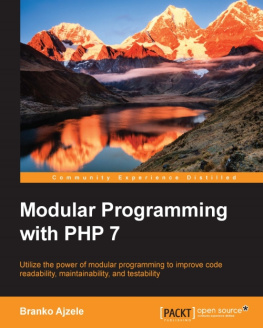About the Author
Erik Westra has been a professional software developer for over 25 years, and has worked almost exclusively in Python for the past decade. Erik's early interest in graphical user interface design led to the development of one of the most advanced urgent courier dispatch systems used by messenger and courier companies worldwide. In recent years, Erik has been involved in the design and implementation of systems matching seekers and providers of goods and services across a range of geographical areas, as well as real-time messaging and payments systems. This work has included the creation of real-time geocoders and map-based views of constantly changing data. Erik is based in New Zealand, and works for companies worldwide.
Erik is also the author of the Packt titles Python Geospatial Development , Python Geospatial Analysis , and Building Mapping Applications with QGIS .
I would like to thank Ruth for being so awesome, and my children for their patience. Without you, none of this would have been possible.
About the Reviewer
Mike Driscoll has been programming in Python since 2006. He enjoys writing about Python on his blog at http://www.blog.pythonlibrary.org/. He co-authored the Core Python Refcard for DZone. Mike has also been a technical reviewer for Python 3 Object Oriented Programming , Python 2.6 Graphics Cookbook , Tkinter GUI Application Development Hotshot , and several others. He recently wrote the book Python 101 , and is working on his next book.
I would like to thank my beautiful wife, Evangeline, for always supporting me. I would also like to thank friends and family for all that they do to help me. And I would like to thank Jesus Christ for saving me.
www.PacktPub.com
eBooks, discount offers, and more
Did you know that Packt offers eBook versions of every book published, with PDF and ePub files available? You can upgrade to the eBook version at > for more details.
At www.PacktPub.com, you can also read a collection of free technical articles, sign up for a range of free newsletters and receive exclusive discounts and offers on Packt books and eBooks.
https://www2.packtpub.com/books/subscription/packtlib
Do you need instant solutions to your IT questions? PacktLib is Packt's online digital book library. Here, you can search, access, and read Packt's entire library of books.
Why subscribe?
- Fully searchable across every book published by Packt
- Copy and paste, print, and bookmark content
- On demand and accessible via a web browser
Preface
Modular programming is a way of organizing your program's source code. By organizing your code into modules (Python source files) and packages (collections of modules), and then importing those modules and packages into your program, you can keep your programs logically organized and keep potential problems to a minimum.
As your program grows and changes, you will often have to rewrite or expand certain parts of your code. Modular programming techniques help to manage these changes, minimizing side-effects, and keeping your code under control.
As you work with modular programming techniques, you will learn a number of common patterns for using modules and packages, including the divide and conquer approach to programming, the use of abstraction and encapsulation, and the idea of writing extensible modules.
Modular programming techniques are also a great way of sharing your code, either by making it available for other people to use or by reusing your code in another program. Using popular tools such as GitHub and the Python Package Index, you will learn how to publish your code, as well as use code written by other people.
Putting all these techniques together, you will learn how apply "modular thinking" to create better programs. You will see how modules can be used to deal with complexity and change in a large program and how modular programming really is the foundation of good programming technique.
By the end of the book, you will have an excellent understanding of how modules and packages work in Python and how to use them to create high-quality and robust software that can be shared with others.
What this book covers
, Introducing Modular Programming , looks at the ways you can use Python modules and packages to help organize your programs, why it is important to use modular techniques, and how modular programming helps you to deal with the ongoing process of programming.
, Writing Your First Modular Program , introduces the divide and conquer approach to programming and applies this technique to the process of building an inventory control system based on modular programming principles.
, Using Modules and Packages , covers the nuts and bolts of modular programming using Python, including nested packages, package and module initialization techniques, relative imports, choosing what gets imported, and how to deal with circular references.
, Using Modules for Real-World Programming , uses the implementation of a chart-generation library to show how modular techniques help to deal with changing requirements in the best possible way.
, Working with Module Patterns , looks at a number of standard patterns for working with modules and packages, including the divide and conquer technique, abstraction, encapsulation, wrappers, and how to write extensible modules using dynamic imports, plugins, and hooks.

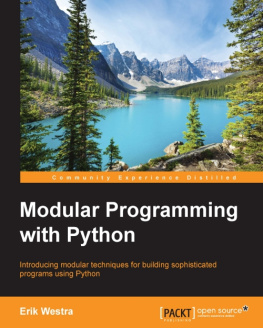

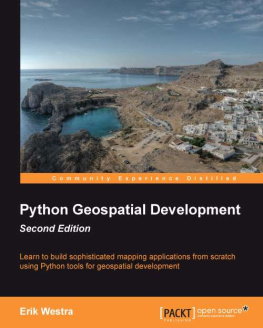
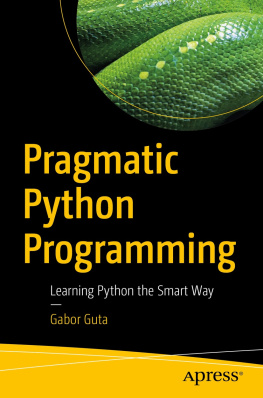
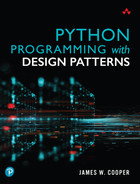
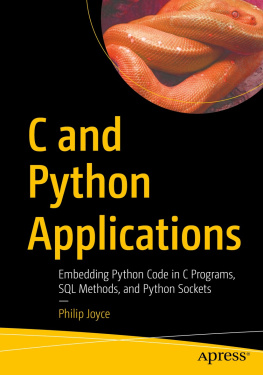
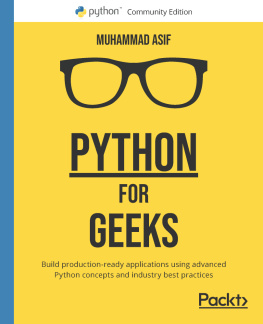


![Alexandru Jecan [Alexandru Jecan] - Java 9 Modularity Revealed: Project Jigsaw and Scalable Java Applications](/uploads/posts/book/119405/thumbs/alexandru-jecan-alexandru-jecan-java-9.jpg)
